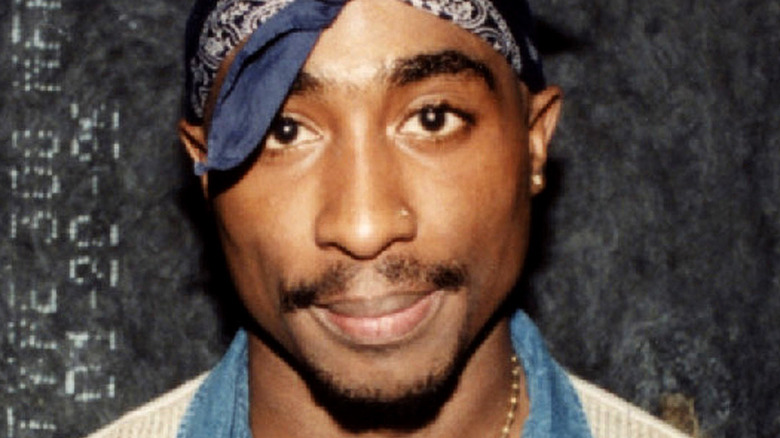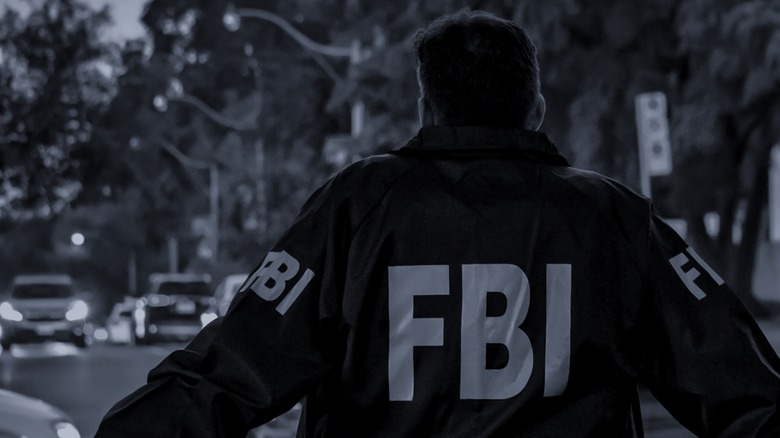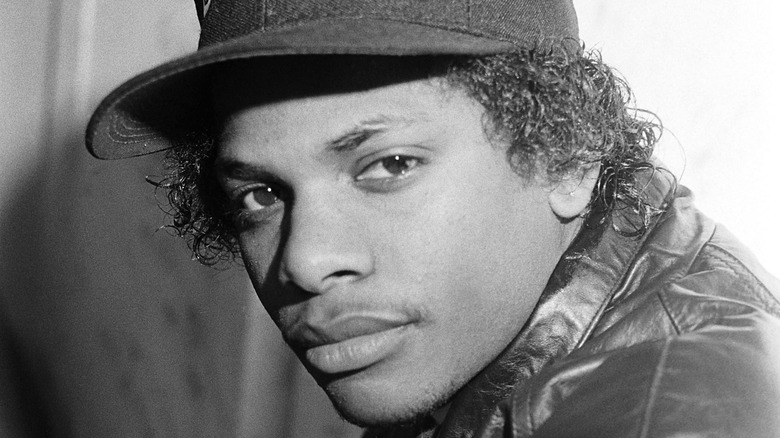The Theory That Tupac And Eazy-E Were Both Targeted By A Domestic Terrorist Organization
On the night of Sept. 7, 1996, Tupac Shakur sat in the passenger's side of a black BMW driven by Marian "Suge" Knight, the founder of Death Row Records, which represented the rapper. They'd just left the Mike Tyson-Bruce Seldon boxing match at the MGM Grand Hotel in Las Vegas and on their way to a nightclub, per History. As the car idled at a red light near the Las Vegas Strip, a white Cadillac with four people inside pulled up next to Shakur's vehicle and opened fire, pelting the car with more than a dozen bullets that ripped into the car's interior, several of which struck Shakur in the chest, per The San Francisco Examiner.
Four days later, while Shakur lay in a hospital bed slowly dying (he eventually succumbed to his wounds on Sept. 13, 1996), the FBI's Los Angeles field office received information about an alleged extortion scheme involving death threats to not only Shakur but to Eric "Eazy-E" Wright as well by a right-wing Zionist organization that the FBI labeled a "terrorist group," per MassLive.
The FBI opens an investigation
An unnamed informant told the FBI that the Jewish Defense League (JDL) and other individuals were part of the scheme involving "extorting money from various rap music stars via death threats," which prompted the Bureau to begin an investigation that October, per the FBI report (via Muckrock). The Southern Poverty Law Center, a non-profit that tracks hate groups, calls JDL an extremist group responsible for "countless" terrorist attacks in the U.S., per SPLC.
The scheme allegedly went like this: The JDL would call in anonymous death threats to the victim. They would then offer to protect the victim for a fee and bring them and their family to a secure location where "gun-toting bodyguards" would watch over them, per the FBI report. The JDL would then convince the victim they'd worked out a deal with the person making the threats. After the victim paid the Zionist organization for its protective services, the threats would end.
What happened with the FBI investigation?
The far-reaching federal investigation included aid from various other agencies, including the IRS, the LAPD, and the LA Sheriff's Department, per The Smoking Gun. The FBI also looked into the possibility that the extortion scheme was connected to a fight over the ownership of Ruthless Records, Eazy-E's label that he had started with industry veteran Jerry Heller to launch N.W.A., the rap group of which he was a founding member, per Muckrock. Following the rapper's death from AIDS-related complications in March 1995, a legal battle ensued between Eazy-E's family and Mike Klein, the label's business manager over control of the record company, per UPI. When the story broke about the FBI investigation in 2000, JDL spokesperson Irv Rubin told VH1 "there was nothing but a close, tight relationship" between Eazy-E and the League.
There were also implications — but no actual allegations — that Tupac Shakur's killing stemmed from the fight between Ruthless Records and Knight's label, Death Row, for stealing the other label's acts, per MuckRock. Shakur's murder remains unsolved. The FBI closed its investigation in May 1999 without charging anyone in the alleged extortion scheme, finding that the agency could not corroborate the allegations against the JDL, according to MassLive.


